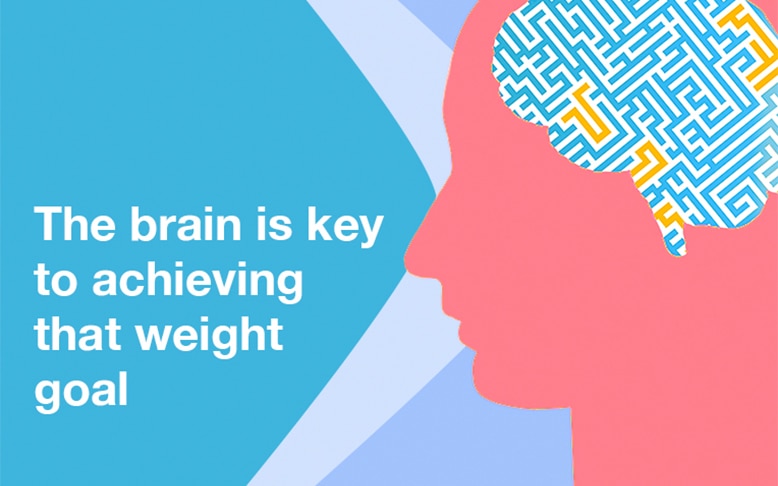A Brief Situationer
In 2020, the WHO Special Initiative for Mental Health in the Philippines and the Department of Health reported at least 3.6 million Filipinos suffering from either a mental, neurological, or substance use disorder.
About 1.14 million are diagnosed with major depressive disorder, 875,145 suffered from alcohol abuse, and 520,614 with bipolar disorder.1 Closely related, another survey revealed that about 1 in 10 Filipino young adults experience moderate to severe depressive symptoms with a higher prevalence among females than males.2
With all the numbers above, economic losses are estimated at 68.9 billion pesos in 2019 from healthcare expenditure and lost productive capacities.3 The immensity of the statistics on human suffering justifies the need to invest in mental health interventions and the attention of Nutritionist-Dietitians. So, how should this problem be addressed?
Facts and Studies Worth Exploring
In addressing problems, it is essential to have a wide range of resources. With mental health problems, correct knowledge is crucial and prior studies are essentially examined.
From a neurobiological standpoint, nutrition plays a significant role in developing and managing mental health issues as nutrients support brain structure and function.
Essential fatty acids, such as omega-3 and omega-6, can reduce the risk of degenerative brain disorders.4 Vitamins, minerals, and antioxidants protect the brain from oxidative stress that damages cells and causes brain injury.5 Carbohydrates, on the other hand, readily fuel the brain.6
Vitamins B6 and B12, folic acid, iron, copper, magnesium, and zinc help maintain normal cognitive function while neurotransmitters are the brain’s chemical messengers responsible for regulatory, inhibitory, and excitatory processes.7 Amino acids serve as the building blocks of neurotransmitters, so a diet rich in protein and essential amino acids favors the synthesis and regulation of these brain chemicals.8 Serotonin, for instance, aids mood regulation and memory, while dopamine controls our reward system and makes us feel pleasure.9
Moreover, the link between specific nutrients and symptoms of mental disorders has been established in several studies. To indulge in the knowledge of nutrients and their effect on human mental health, here are 7 nutrients and 1 mechanism to check out.

The microbiome-gut-brain axis furthers the bidirectional relationship between nutrition and mental health. As the brain closely communicates with the gut, via neural, immune, and endocrine pathways, disturbances in the gastrointestinal system may trigger mood changes. On the other hand, stress signals from the brain can also affect digestion. Because serotonin is primarily synthesized in the gut, an imbalance in the gut microbiota is associated with stress, anxiety, and depressive symptoms. These connections explain why constipation, diarrhea, and abdominal pain often accompany neurological and mental disorders.40,41
Knowledge in Action
A healthy lifestyle, including good nutrition, can improve mental health and well-being. The consumption of moderate and quality portions of food ensures that the body is provided with the nutrients needed to maintain normal functioning. Specifically, choosing complex carbohydrates like whole grains, fruits, and vegetables provide a steady supply of fuel for the brain.
Meat, tofu, and milk are good sources of tryptophan and tyrosine, which are precursors of neurotransmitters. Omega-3 can be found in fatty fish and shellfish, while omega-6 can be found in vegetable oil, nuts, and seeds. Red meat, organ meats, leafy greens, egg, dairy, and whole grains are good sources of B vitamins, iron, and zinc. Vitamin C in citrus fruits, guava, papaya, and bell peppers can help improve iron absorption. Probiotics, such as yogurt, kefir, kombucha, and kimchi, can promote gut health.
Antioxidants from fruits and vegetables can protect the brain from cell damage and from inflammation associated with depression and stress. Limiting caffeine intake to 135 mg or about 1-2 cups of coffee per day can decrease anxiety, and restlessness, and improve sleep quality.
Drinking water, at least 2-3 L per day, can improve concentration and alertness. Staying active, which means at least an hour a day of moderate aerobic exercise, can improve sleep and mood. Incorporating behavior modifications such as setting meal times, sharing food, preparing healthy snacks, and savoring every bite all contribute to wholesome and mindful eating.
Mental Health x Nutrition
Mental health is a function of genes, biology, life experiences, and interactions with the environment. While some individuals are more at risk of developing mental disorders due to predispositions, a larger part of it remains controllable. As we bounce back from the pandemic and get back to business as usual, let us not forget how important it is to take breaks, surround ourselves with people we love, and nourish ourselves with food that satisfies both the mind and body. After all, eating well is also self-care.
As we start investing in our own health and well-being, we build a stronger economy with increased work productivity and reduced healthcare costs and we add more to our quality of life.
Message to RNDs
While mental health remains complex, we can move towards better well-being by choosing to eat whole grains, fruits and vegetables, fish, and lean meat.
Pro Tip
Fuel the brain with complex carbohydrates, B vitamins, and Omega-3 while keeping a healthy balance in your gut for better mental health.


 Anna Teresa O. Orillo , RND, MSc
Anna Teresa O. Orillo , RND, MSc















No comments here yet.